May 15, 2024
Want to Lower Your Power Bills and Help Your State Fight Climate Change? Here’s Who to Talk to
In public utility commissions, we’re helping communities push for clean, affordable electricity for all. Here's what you should know about these key decision makers.
In a conference room somewhere in your state, a small, largely unseen group of people is casting votes that could make or break the clean energy transition.
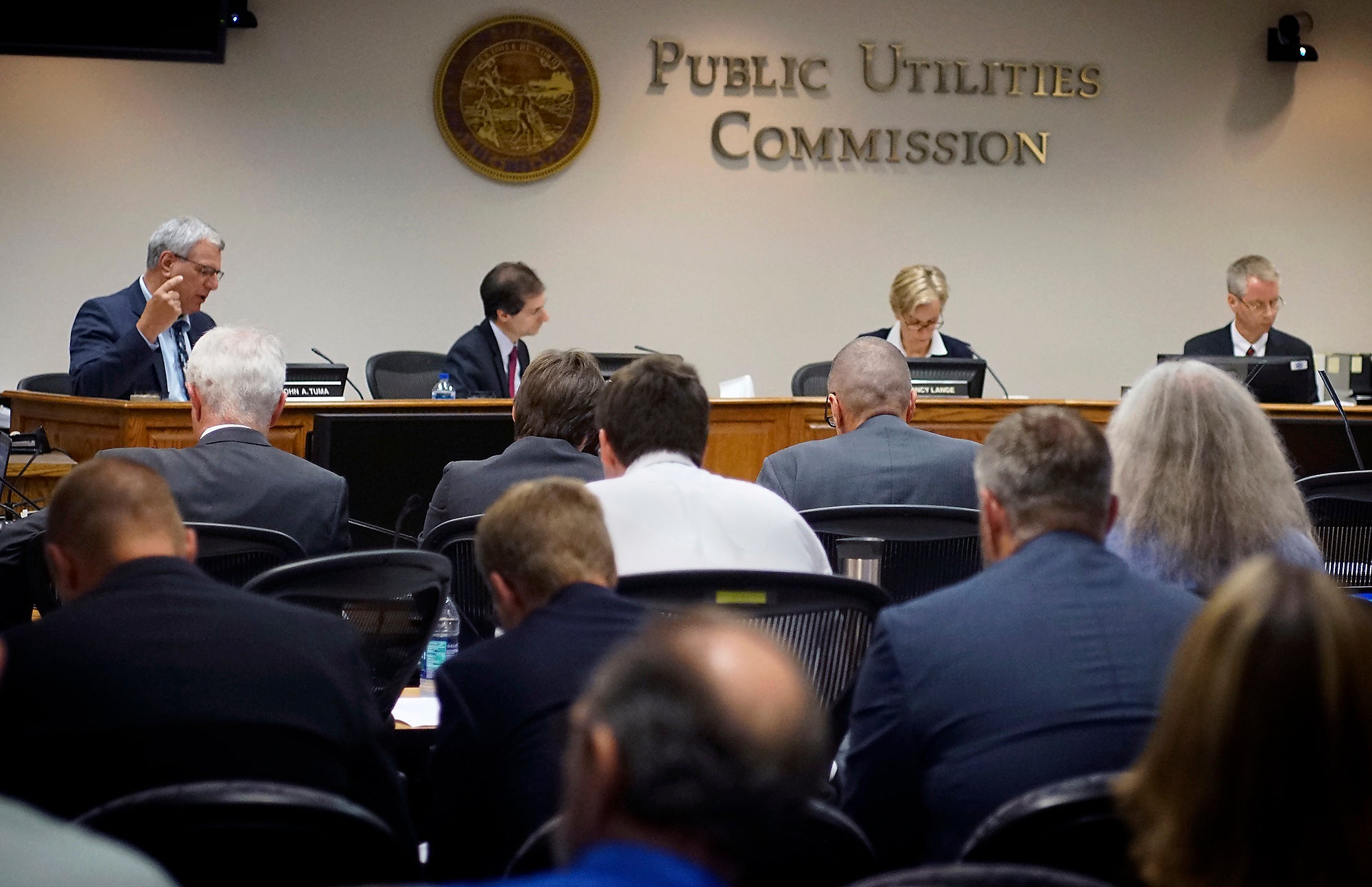
You’ve probably never heard their names, and you might not even know the name of the agency they’re running: the state public utility commission (PUC). Fossil fuel interests would love to keep it that way.
PUCs regulate utilities. (In some states, they have other names, like public service commissions, or PSCs.) They determine the cost of your gas and electricity bills, and in many states, where your power comes from, whether it’s fossil fuels, hydroelectricity, or renewables like wind and solar.
These state regulators have an enormous opportunity to speed the transition away from coal and gas, drive the buildout of clean energy, alleviate the climate crisis, and ensure we have affordable and reliable electricity.
In almost all states, community members have the right to comment at PUC meetings. But in the room where it happens, these commissions are often hearing from slick utility lawyers and consultants whose greenwashing would result in decades of dirty infrastructure that our planet cannot afford.
How Public Utility Commissions (PUCs) influence your energy rates — and the rate of climate change States created PUCs to oversee utility monopolies because we all need power to live. In many ways, PUCs operate like courts. When a utility wants to increase rates, build a methane gas power plant or pipeline, prop up an aging coal plant, or build new energy infrastructure, the proposal typically comes before the PUC for a hearing.
Utilities too often tend to argue for old, dirty sources of power over renewables (more on this below). And well-resourced utilities can afford to hire experts to help them navigate the highly technical PUC proceedings, meaning that they have a huge advantage in making their case.
Earthjustice is one of the few organizations with the expertise to rise to the challenge of opposing the utilities. Our attorneys push back on those big-money arguments at PUC hearings, advocating for commissioners to choose clean, energy efficient solutions that yield financial and environmental benefits to everyone, instead of throwing a lifeline to fossil fuels.
Getting input from the public is therefore essential to informing commissioners about their constituents’ desire for clean energy. When the public isn't in the room, you can rest assured that profit-driven utilities are in there, making a case for expensive, polluting fossil fuels that their customers would be forced to pay for.
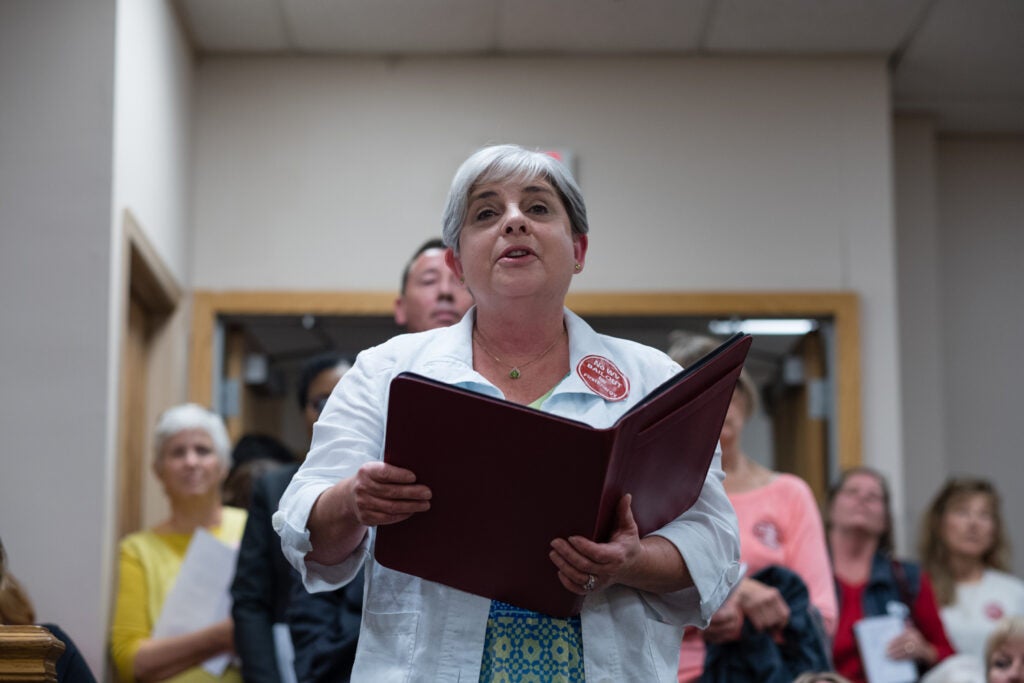
A community member speaks at a West Virginia Public Service Commission hearing (above and below) in 2017 to oppose the sale of the Pleasants Power Plant. If the scheme had succeeded, Mon Power and Potomac Edison customers would have assumed all of the plant’s costs and financial risks, while FirstEnergy and its shareholders would receive a guaranteed revenue stream. More than 2,500 residents, businesses, and nonprofits successfully opposed the Pleasants Power Plant sale by speaking at the PSC’s three public hearings, filing letters of protest with the PSC, writing letters to the editor, and more. (Roger May for Earthjustice)
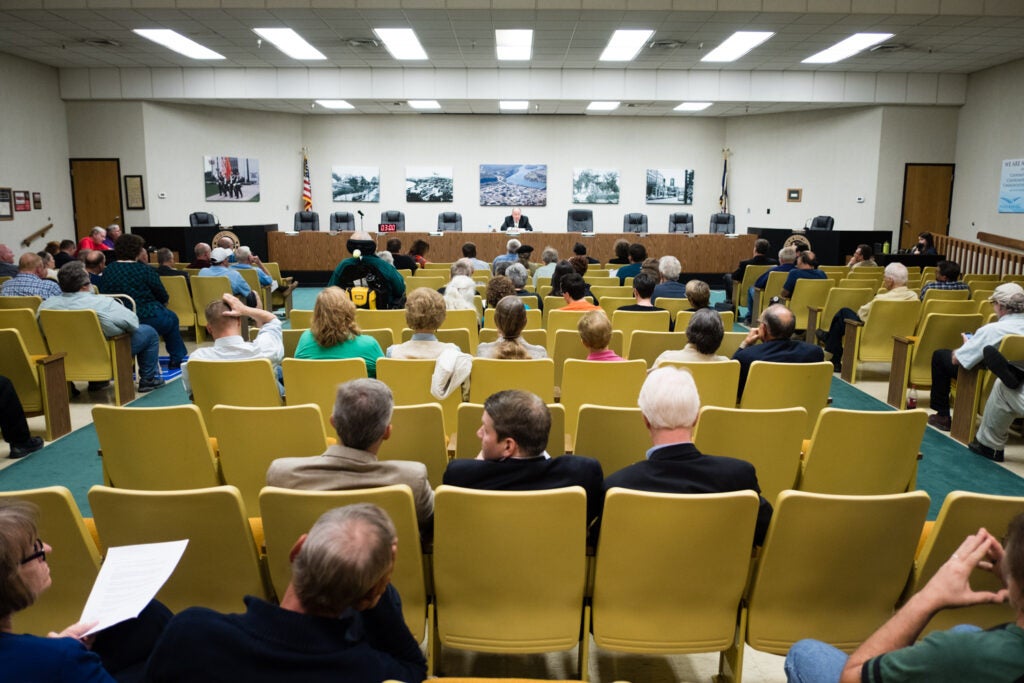
Who runs the PUCs? PUCs usually consist of 3 or 5 members, though a handful are a bit larger. In most states, the governor appoints these commissioners; in a handful of others, they are elected by the public.
Right now, there’s a big discrepancy between who gets to determine the cost of electricity and who bears the biggest burden of paying for it.
Over three-quarters of PUC commissioners are white, and nearly two-thirds are men. Yet low-income, Black, Hispanic, and Native American households all face dramatically higher energy burdens — spending a greater portion of their income on energy bills — than the average household.
Energy burden can force people to make excruciating choices, like keeping homes at an unhealthy temperature to save on utility bills or reducing important expenses like food or medicine.
That’s why it’s incredibly important that people know what’s going on at their state PUC, and that they have a say in dirty energy projects that could inflate their bill. Earthjustice fights rate increases, holds utilities accountable, and defends and expands energy efficiency programs.
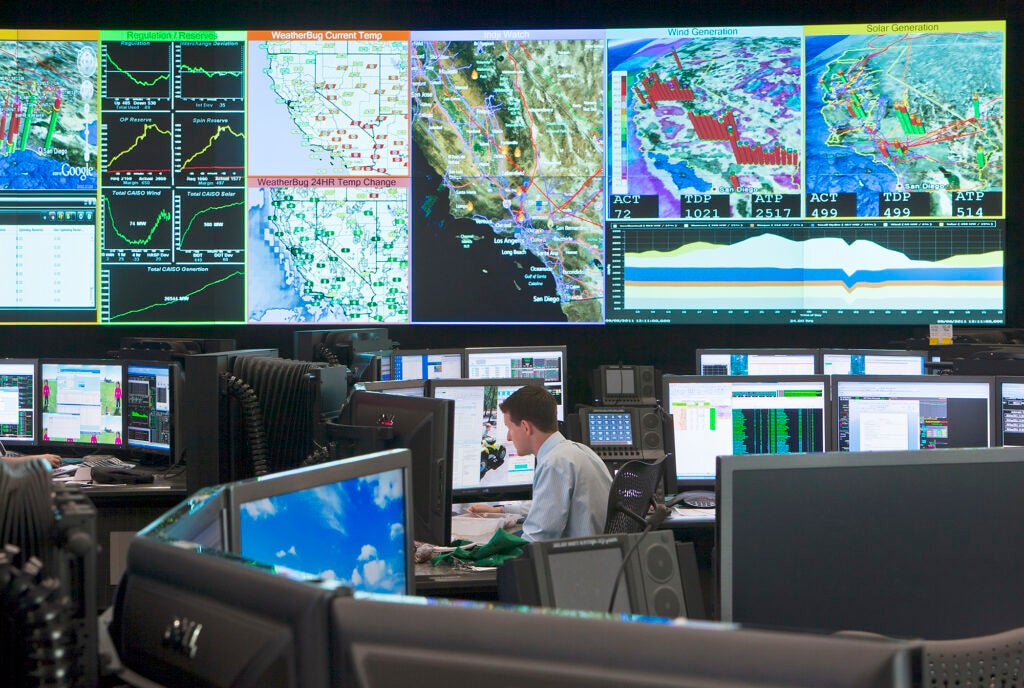
Workers at the California Independent System Operator monitor the state's high-voltage transmission grid. (Rolf Schulten / ullstein bild via Getty Images)
Why utilities are dragging their feet on clean energy Utilities are slow-walking the expansion of clean energy in multiple ways — but PUCs can pressure them to move faster. Clean energy has become economically competitive with fossil fuels, but utilities want to maintain their profits and monopolies.
While utilities are starting to build utility-scale solar, wind, and storage (though not nearly as quickly as needed to address climate change), many try to maintain their monopoly on generating power by establishing barriers to renters, homeowners, or businesses from pursuing clean energy on their own.
For example, utilities often seek to increase monthly charges for solar panel-owning customers and refuse to compensate them fairly for the extra energy they produce.
Many utilities keep pushing to construct long-lived methane gas infrastructure that will lock us into a future of explosive gas lines, polluting power plants, and climate catastrophe. This is their perverse response to the fact that they make a guaranteed profit on every dollar spent on infrastructure, like billion-dollar gas plants whose presumed "useful life” stretches out for decades. Since utilities are privately owned by shareholders who are looking to make a profit, there is every incentive for them to convince PUCs that they need to keep building methane gas infrastructure, regardless of public demand, harm to the planet, or better alternatives.
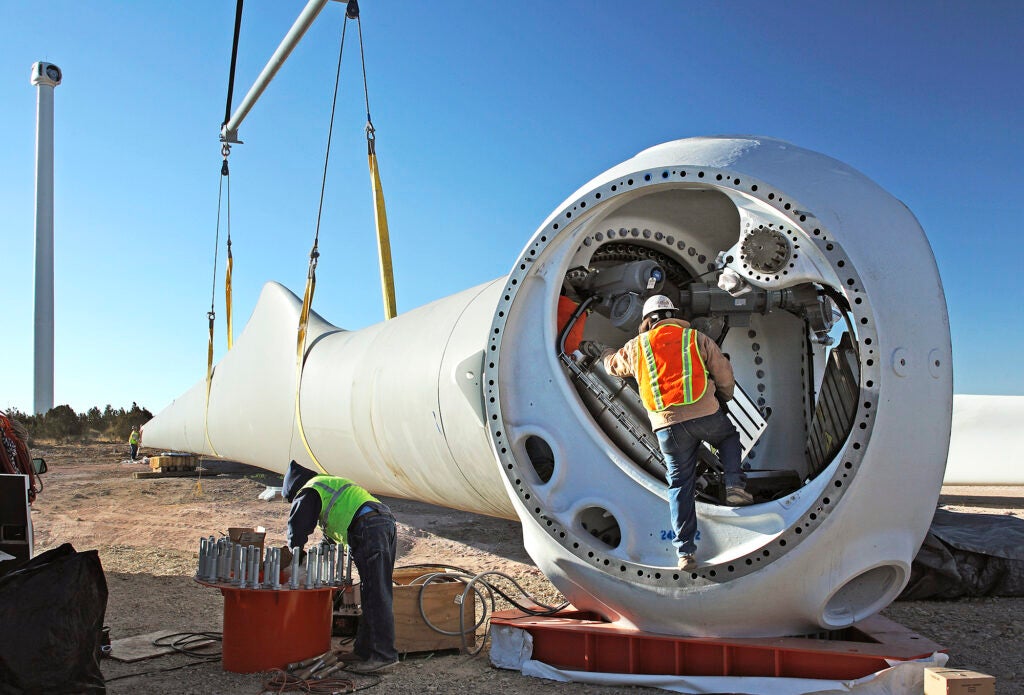
Wind turbine construction near Mountainair, New Mexico. (Jeff Barger / Construction Photography / Avalon / Getty Images)
How Earthjustice is leveling the playing field for clean energy at PUCs With the largest public-interest clean energy litigation program in the U.S., Earthjustice has decades of experience representing residents and community groups at PUCs to ensure a faster and fairer energy transition.
Together, we are making big strides in the following areas:
Speeding the transition to clean energy: We have pushed 158 coal-fired power units in 23 states into early retirement and we challenge utility plans to keep investing in expensive, uneconomical fossil fuel plants.
- The cost of new clean energy is typically cheaper than methane gas and coal — and it has the further benefits of addressing the climate crisis and not polluting communities.
- Money from the Inflation Reduction Act — the largest investment in clean energy ever — sweetens the pot further, something we make sure utility regulators are factoring into decisions about what power mix to approve.
- Additionally, we advocate for distributed energy resources like rooftop solar, battery storage, and electric vehicles that can further bring down costs and increase reliability.
- Finally, the cheapest, cleanest energy of all is the energy we do not need, which is why we push for energy efficiency measures and incentives.
Advancing energy justice: We help residents challenge rate increases and harmful fixed charges sought by utilities. Our current fossil fuel-burning power system particularly burdens low-income communities with unaffordable bills and deadly pollution.
- We are advancing a clean energy future that doesn’t replicate the inequities of the past. We are pushing to reduce energy burdens (the percent of income spent on energy) and provide just transitions for communities whose economies were built around dirty energy.
- In our cases, we expand and improve energy efficiency and electrification programs, with a particular focus on making sure these programs reach low-income residential customers such as people who may need home repairs before they can weatherize their home or replace gas appliances.
- We also push for bill assistance and against power shut offs.
- We fight efforts by utilities to stick their customers with the tab for their lobbying and marketing – especially when it’s aimed at extending fossil fuels.
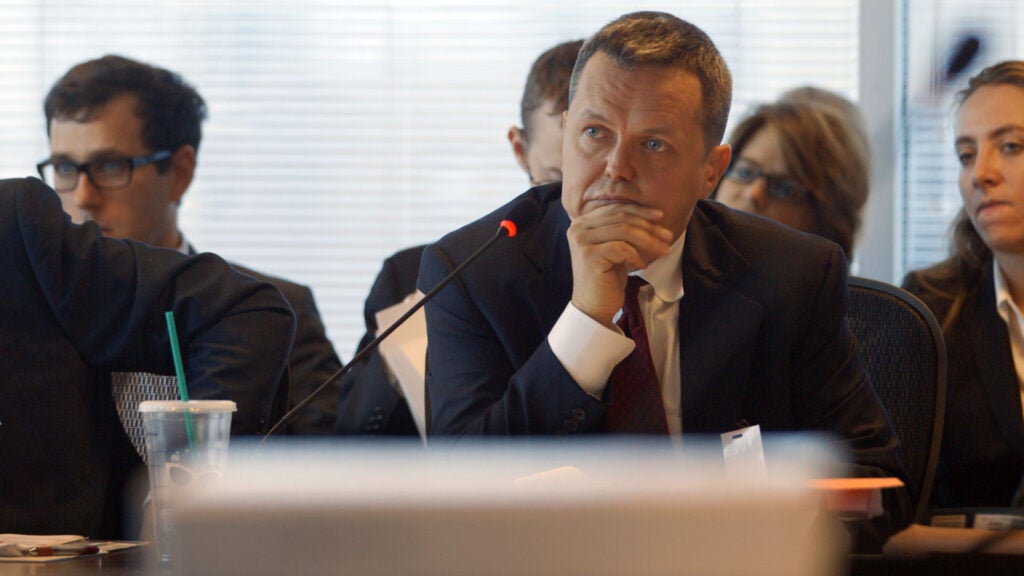
Earthjustice attorney Shannon Fisk (center) at a Ohio Public Utilities Commission proceeding to fight utility proposals that would cost customers billions of dollars while guaranteeing profits for corporate shareholders. (Years of Living Dangerously)
Electrifying our lives: As power generation gets cleaner, we want everyone to be able to plug into it, removing pollution and high costs from our daily lives.
- We are working on building electrification by ensuring utilities are incentivizing electric appliances like heat pumps and induction stoves, building on the significant incentives offered by the IRA.
- We fight efforts by gas utilities to extend gas infrastructure to new housing developments.
- And we also push some utilities to provide rebates or other incentives for low-income customers to purchase electric appliances and vehicles.
Creating a more resilient power system: The energy system we are building is not only clean but decentralized and resilient — local solar power during the day, energy storage at night, and programs and appliances to manage demand and reduce peak load. The energy system of the future will be less dependent on large centralized power and more resilient in disasters and extreme weather.
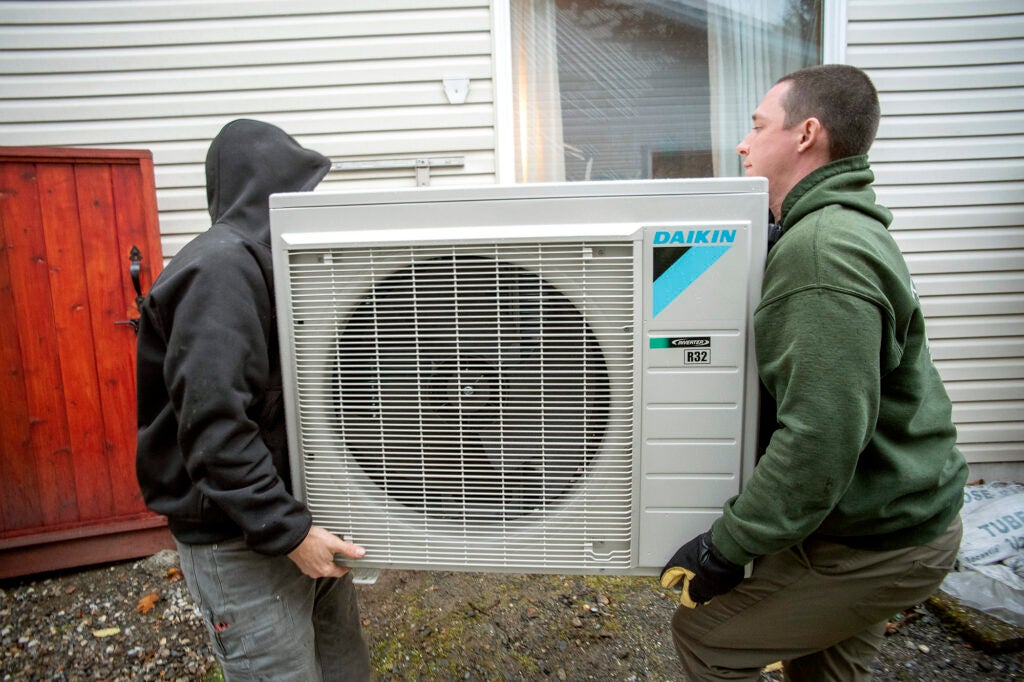
Sonny Ashby, left, and Robby Brian, of Alaska Plumbing and Heating, install a heat pump in Juneau, Alaska. (Michael Penn for Earthjustice)
That’s why Earthjustice is in those rooms across the country, using our skills as litigators and our vast experience on energy issues to highlight the costs of coal and gas, make the case for affordable clean energy, and expand the range of options the PUCs consider as they architect everyone’s green future.
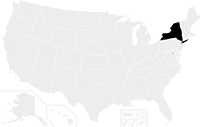
Powering up the Clean Energy Transition
See how we are working in your state’s public utility commission for a faster, fairer transition to clean energy.
-

Alaska’s potential for clean energy is vast, yet utilities are planning to import liquified natural gas, which would significantly raise rates for customers. Earthjustice is intervening before the Regulatory Commission of Alaska. Read more & get involved.
With abundant wind, geothermal, tidal, solar, and fish-friendly hydropower options, the potential to develop clean energy in Alaska is vast. And yet the state is planning to soon import liquified natural gas (LNG) to address its looming energy crisis. In 2023, Earthjustice intervened for the first time in a case before the Regulatory Commission of Alaska to advocate for energy conservation and help facilitate the buildout of clean energy in Alaska.
More than 80% of Chugach Electric Association's electricity comes from gas extracted locally from Cook Inlet, but that gas is now scarcer and more expensive to produce. To fill the gap, utilities are planning to import LNG as soon as 2027, which would significantly raise rates for customers who already pay some of the highest energy prices in the country.
Alaskans should not be locked into burning expensive imported gas to power their homes and businesses when there are ample clean energy resources to develop in the state. The federal Inflation Reduction Act can help fund the buildout of renewable energy and transmission in Alaska. But utilities and lawmakers are standing in the way of Alaska’s clean energy boom.
On behalf of our client Renewable Energy Alaska Project (REAP), Earthjustice submitted plans that would conserve limited remaining local gas and encourage adoption of rooftop solar on local homes and businesses. REAP believes that by using available federal and state funds to develop Alaska’s vast potential for clean energy, Alaska can move away from its dependency on fossil fuels and create a better future.
Want to get involved in Alaska? Reach out to Renewable Energy Alaska Project (REAP)
Utilities involved: Chugach Electric Association
-

Arizona ranks second in the country for solar potential, but coal still provides more electricity than solar. Earthjustice represented Vote Solar before the Arizona Corporation Commission to defend against utility attacks on rooftop solar. Read more & get involved.
Arizona should be leading the nation in solar energy, as it ranks second only to Nevada in solar potential. But coal-fired power plants still provide more electricity than solar. Utility- and small-scale solar and solar-thermal power plants provide just 10% of Arizona’s energy.
The largest utilities in Arizona, with the help of the regulators, effectively curtailed rooftop solar by undermining the affordability of Arizona’s abundant clean energy. Earthjustice represented Vote Solar before the Arizona Corporation Commission (ACC) to defend against utility attacks on rooftop solar.
In 2016, the ACC drastically reduced the rate at which solar customers are credited for energy they supply to the grid (known as net metering) and in 2017 effectively ended net metering for new solar customers, despite Earthjustice’s intervention. Since then, Arizona utilities continue to try to impose mandatory fees and exorbitant fixed charges to halt the growth of solar.
Earthjustice victories include defeating discriminatory charges for rooftop solar and increased compensation rates for solar power.
- In 2017, we got the ACC to significantly decrease Tucson Electric Power’s proposed monthly solar meter fee.
- In 2018, we won a higher rate for new rooftop solar, when the ACC rejected Tucson Electric Power and UNS Electric’s aggressive proposals to make rooftop solar uneconomic.
- In 2021, we challenged and successfully ended a discriminatory charge imposed on solar customers that threatened to chill the growth of rooftop solar in Arizona. In 2024, Arizona Public Service Company reimposed its “grid access charge,” and we are challenging it again.
Want to get involved in Arizona? Sign up with our client Vote Solar
Utilities involved: Tucson Electric Power Company (TEP), Arizona Public Service Company (APS), UNS Electric
-
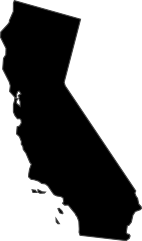
California was Earthjustice’s proving grounds to argue in front of public utility commissions for cleaner, more equitable energy policies. Since 2010, we have pushed the California Public Utilities Commission to rethink how the state generates electricity. Read more.
The state of California is a land of firsts: the first state in the continental U.S. to have a 100% clean energy goal; the first to entirely stop the building of new gas plants; and the first to serve as the proving grounds for Earthjustice to argue in front of public utility commissions for cleaner, more equitable energy policies. This groundbreaking strategy in many ways helped lead to the first two accomplishments — and many more.
Our interventions have successfully challenged gas plant proposals, established first-in-nation requirements for deployment of battery storage, and ensured that future energy needs are met with clean energy. We also championed SB 100, the state's landmark clean energy law, across the finish line in 2018.
Our work does not stop with cleaning up the power sector. At the CPUC, we have secured:
- Needed investments in vehicle charging infrastructure
- Incentives to deploy heat pumps and other electric alternatives to gas appliances
- An end to subsidies for gas lines to new homes
- Rigorous processes to review major proposed investments in the gas system
- Sanctions for gas utility abuse of customer funds to undermine energy efficiency standards
As Earthjustice racks up the wins, innovation continues to drive more innovation. Today, California leads the nation in energy battery storage on its grid and electrifying freight vehicles like big rigs and rail. And as California passes landmark rules to shift all car sales to zero emissions and establish electric heat pumps as default technology for buildings, other states are following suit.
Our clients: Sierra Club, Central Coast Alliance for Sustainable Economy, East Yard Communities for Environmental Justice
Utilities involved: Pacific Gas and Electric (PG&E), SoCalGas, San Diego Gas and Electric, Southern California Edison
-

Colorado is rapidly cleaning up its power sector. We’ve taken on more than 40 cases before the Colorado Public Utilities Commission over the past decade, leveraging aggressive goals set by the state legislature to push for progress. Read more & get involved.
Colorado is on the frontline in the fight to make buildings and transportation more climate-friendly.
Earthjustice has taken on more than 40 cases before the PUC since starting this work in 2014. We have been able to leverage aggressive goals set by the state legislature to push successfully for progress.
- By 2030, all coal plants are scheduled to be retired — a huge shift from 2020, when a third of the state’s electricity came from coal.
- The end of coal power brings major public health and climate benefits but also some loss of local taxes and jobs. In 2022, Earthjustice fought at the PUC for a just transition for these communities, including tax revenue offsets and additional funding for community benefits, such as home weatherization, new business incubation, and workforce training.
- Wins to ensure access to clean energy for everyone, including $32.8 million for low-income community solar, rooftop solar, and battery storage programs — up from the $13.1 million proposed by the utility Xcel Energy.
- We also successfully pushed to curb gas price hikes sought by Xcel looking to expand its gas infrastructure.
In an emerging fight over building decarbonization, Earthjustice is encouraging electrification, while gas utilities are pushing false solutions such as hydrogen, “renewable natural gas,” and carbon offsets. We've won some early victories.
Want to get involved in Colorado? Join up with our clients GRID Alternatives, Vote Solar, and Southwest Energy Efficiency Project. Other clients include: GreenLatinos, Cultivando, Mi Familia Vota, Mothers Out Front, NAACP Denver, Womxn from the Mountain, Black Parents United Foundation
Utilities involved: Xcel Energy, Atmos Energy, Black Hills Energy, Tri-State Generation and Transmission
-

In Washington, D.C., we’re taking a two-pronged approach by working to support the district’s electrification efforts and fight investments in gas. Read more.
In Washington, D.C., Earthjustice is advancing our Right to Zero campaign, focused on cleaning up climate emissions.
Recently, D.C. officials announced admirable climate goals, such as requiring that new buildings be energy net-zero by 2027. By 2045, the district is mandated to achieve carbon neutrality and to phase out methane gas infrastructure from government buildings.
In stark contrast, the gas utility company Washington Gas Light (WGL) has been trying to spend its customers’ money on investing in the very gas infrastructure that the district aims to phase out in the coming decades.
In 2023, Earthjustice and our clients intervened at the D.C. Public Utility Commission to prevent it from allowing WGL to use ratepayer funds for this economically and environmentally unsound project to put more gas pipes in the ground.
A year earlier, the district increased incentives for electric appliances, such as financial benefits for using heat pumps and electric water heaters, while ending incentives for gas appliances. WGL criticized the decision, stating that it wants to provide rebates to customers for using gas. Earthjustice will oppose any such attempt by WGL to provide rebates for gas use, and we will continue to fight to ensure that electric appliances are the most affordable choice for low-income and middle-income district residents.
Currently, WGL’s ratepayer-funded gas pipe project is before the D.C. Public Service Commission, which has the power to approve or reject it. We’re asking the Commissioners to reject this costly proposal that would send D.C. back decades in its climate progress.
Our clients: Cheasapeake Climate Action Network, Sierra Club
Utilities involved: Potomac Electric Power Company (PEPCO), Washington Gas Light (WGL)
-
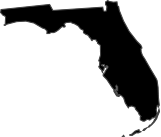
Florida boasts extraordinary potential for clean energy but remains stuck with fossil fuels and some of the highest energy bills in the country. We’re working in the Florida Public Service Commission to reduce costs and ensure the benefits of clean energy are equitably shared. Read more & get involved.
Earthjustice has been working since 2007 in the Florida Public Service Commission to increase transparency and energy efficiency, reduce costs, and ensure that the benefits of clean energy are equitably shared among Florida residents.
- In 2024, after more than a decade of beating back utility assaults on energy efficiency programs before the Florida PSC, Earthjustice attorneys got major utilities to increase energy efficiency efforts and expand programs for low-income residents. More than 100,000 additional low-income Floridians will get meaningful help in conserving energy over the next five years thanks to the increases.
- In 2021, Earthjustice and our partners secured a win in the Florida Supreme Court requiring the Florida Public Service Commission to explain its decisions to increase transparency. This decision impacts schemes from Duke Energy and Florida Power and Light to increase rates for customers. The PSC must show that these rate increases are fair, just, and reasonable for customers.
- In 2017, Earthjustice and our partners prevented a fixed charge rate increase from $18 to nearly $50, proposed to the Florida PSC by Gulf Power. The rate increase was unnecessary and would have disincentivized energy efficiency measures, energy conservation, and rooftop solar. Our attorneys advocated for the rate increase to be removed, and our partners flooded the PSC hearings in record numbers to voice their objections. Gulf Power removed the increase in a settlement.
Want to get involved in Florida? Join Florida Rising. Other clients include: League of United Latin American Citizens of Florida, Environmental Confederation of Southwest Florida
Utilities involved: Florida Power and Light, Duke Energy, Tampa Electric Company, Orlando Utilities Commission, JEA
-

We played a key role in moving Hawaiʻi toward a 100% renewable mandate for electricity — and in establishing a “performance-based regulation” system that rewards the utility based on how well it serves the public, rather than how much money it spends. Read more.
Hawaiʻi was the first state to commit to a 100% renewable mandate for electricity in 2015, and Earthjustice's Mid-Pacific office has played an important role in moving the state toward this goal.
In 2016, Earthjustice joined a broad coalition to defeat the takeover of Hawaiian Electric Company (HECO), the state’s largest utility, by NextEra Energy, a traditional utility monopoly that wanted to convert Hawaiʻi to fossil gas.
From 2018 to 2020, Earthjustice represented Blue Planet Foundation at the PUC to overhaul HECO’s financial incentives. This included ending the utility’s ability to pass through 100% of fossil fuel costs to its ratepayers and establishing a leading-edge “performance-based regulation” system that rewards the utility based on how well it serves customers and the public, rather than how much money it spends.
In 2022, the PUC adopted proposals by Earthjustice and its solar industry partners to create a comprehensive new structure for smart, time-based electric rates that gives customers new opportunities to save money, while modernizing the grid.
In the coming years, we will continue to see through these reforms of utility incentives and rates, oppose attempts to prolong fossil fuel dependency in Hawaiʻi, and maximize opportunities for customer adoption of clean energy.
Our clients: Hawaii Solar Energy Association, Sierra Club, Blue Planet Foundation
Utilities involved: HECO (Hawaiian Electric Company), KIUC (Kauai Island Utility Cooperative), Hawaii Gas
-

Since 2012, Earthjustice has been litigating at the Indiana Utility Regulatory Commission, the courts, and federal agencies to retire existing coal, challenge proposed new methane gas, and advance clean energy investments. ranks third in the country for coal consumption. Read more & get involved.
- Through our advocacy and influence, Northern Indiana Public Service Company (NIPSCO), one of the largest energy producers in the state, has built new wind generation and new solar generation since 2021.
- In 2019, alongside our client Citizens Action Coalition of Indiana, we successfully persuaded the Indiana Commission to reject a proposal to build a combined-cycle gas power plant.
- We also reached a settlement that secured the retirement of a 1,300 MW coal-fired power plant that had been leased by American Electric Power for over 30 years to provide retail electric power to customers. The plant was sold to AEP in 2022 but will be retired by 2028.
Want to get involved in Indiana? Sign up to get news and updates on campaigns from the Citizens Action Coalition of Indiana
Utilities involved: American Electric Power, NIPSCO, Duke Energy
-

Iowa has more than 6,000 wind turbines, providing nearly two-thirds of its electricity, making it second only to Texas in the amount of power produced from wind. We went before the Iowa Utilities Board to fight for fair pricing of renewable power and more. Read more.
Earthjustice first represented the Sierra Club in 2018 before the Iowa Utilities Board to fight for fair pricing of renewable power and against misleading utility marketing.
- In 2018, we fought a proposed renewable energy subscription tariff to stop misleading utility marketing that falsely implied renewable energy costs more than fossil fuel generation. The so-called "Beyond Solar" tariff was proposed by Alliant Energy's Iowa subsidiary, Interstate Power and Light.
- In 2017, Earthjustice argued before the Iowa Utilities Board that Interstate Power and Light would lower costs for consumers by building more wind projects to replace coal-fired power plants.
- In 2020, Earthjustice filed a complaint with the Federal Energy Regulatory Commission to challenge a decision by the Iowa Utilities Board that banned retail customers from participating in wholesale energy markets though demand-response programs.
Demand-response programs pay customers for lowering their electricity use at times of peak demand. Those rapid-response reductions displace the need for additional electricity generation — which often comes from burning fossil fuels. Residential and small business customers can participate in wholesale electricity markets by coordinating with a third party that aggregates everyone’s energy use. Thousands of customers with smart thermostats can offer to slightly reduce their air conditioning during peak electricity demand hours, for example. But the Iowa Utilities Board has blocked people from participating in those markets.
Earthjustice is fighting so that everyone can benefit from demand-response programs.
Our clients: Sierra Club
Utilities involved: Interstate Power and Light (IPL), Central Iowa Power Cooperative, Corn Belt Power Cooperative
-

In Kansas, we’re working to create a level playing field for clean energy — including through an access to clean energy case that went all the way up to the Kansas Supreme Court. (We won.) Read more & get involved.
Earthjustice and our partners have been working in Kansas for over a decade to create a level playing field for clean energy alternatives. We’ve advocated for a clean energy future before the public utility commission (known as the Kansas Corporation Commission), state court, and federal court.
Starting in 2018, Earthjustice and our clients — the Sierra Club of Kansas and Vote Solar — set out to challenge a spreading industry tactic to disincentivize clean energy alternatives. We went all the way to the Kansas Supreme Court, which ruled in 2020 that discriminatory charges for customers who generate their own power with rooftop solar were illegal. It was a major step forward for clean energy access in the state and created a fairer market for clean energy.
Earthjustice also fought from 2007 to 2018 to successfully stop plans to build a new coal plant in Holcomb. The effort involved air permit challenges in the Kansas Supreme Court and a National Environmental Policy Act challenge to the plant’s financing in federal courts.
We are currently working on behalf of Kansas customers and clients Vote Solar, Sierra Club, and Climate + Energy Project to create programs to work with third parties to regulate their energy usage during peak demand with devices like smart thermostats. This helps keep energy usage down and reduces the need for extra electricity from dirty coal plants. Kansas utility company Evergy wants to block customers from conserving energy to protect their profits.
Want to get involved in Kansas? Sign up for updates and actions from Vote Solar. Other clients include: Climate + Energy Project, Sierra Club
Utilities involved: Evergy
-

In Kentucky, public participation in the Public Service Commission process and hundreds of pages of expert technical comments led to significant progress for clean energy and low-income customers. Read more & get involved.
A major decision on Kentucky’s energy future came in 2023 after Louisville Gas & Electric Company and Kentucky Utilities Company proposed closing four coal units and replacing them with a mix of dirty gas and clean energy. The legislature passed a law that same year making it harder to retire coal plants.
Earthjustice, meanwhile, represented a coalition of local energy justice groups pushing for relief from high utility bills, an equitable transition to clean energy, and a healthy environment.
Major public participation in the Public Service Commission process and hundreds of pages of technical comments by experts later, we achieved significant progress for clean energy and low-income customers:
- Retirement of two of the four coal units and three gas turbines
- Denial of one of two proposed dirty gas plants
- Approval of six new solar facilities and the state's largest utility-scale battery
- The largest expansion of energy efficiency programs in the companies’ history, which will reduce the need for new generation in the future
- Expanded programs and benefits for low-income customers, including keeping in place a requirement that low-income weatherization programs are targeted toward households at or below 200% of the federal poverty limit
Additionally, Kentucky produces more carbon dioxide pollution from cryptocurrency mining than any other U.S. state. Earthjustice has successfully challenged sweetheart “special contracts” where utilities give crypto miners cheaper rates on electricity. The PSC denied the contract for the largest proposed crypto facility in the state and curbed others to protect residents from unfairly subsidizing crypto miners.
Want to get involved in Kentucky? Join Kentuckians for the Commonwealth. Other clients include: Mountain Association, Kentucky Solar Energy Society, Kentucky Resources Council, Appalachian Citizens' Law Center, Metropolitan Housing Coalition, Sierra Club
Utilities involved: Louisville Gas & Electric Company and Kentucky Utilities Company (LG&E-KU), Big Rivers Electric Corporation, Kentucky Power Company, East Kentucky Power Cooperative, Duke Energy Kentucky
-

Earthjustice has made significant strides to spur the clean energy transition in Louisiana while battling plans by energy utilities to replace coal with gas. Read more.
Some of our work so far includes:
- In 2022, after Entergy Louisiana applied to the Louisiana Public Service Commission to build gas-fired microgrids on commercial and industrial sites, Earthjustice opposed the application. The Public Service Commission agreed to require the company to include 30 MW of distributed solar and battery storage installation on the sites.
- Earthjustice fought to stop Entergy from building a 226 MW gas plant in a predominantly Black and Vietnamese community in New Orleans East, which is already overburdened with toxic pollution. Although Earthjustice couldn’t prevent construction, the size of the gas plant was reduced by more than 40%, which was a victory.
- Now Earthjustice is representing community groups as they fight a proposal to construct a 112 MW floating gas power plant off the coast near Leeville, LA.
Earthjustice continues to intervene to ensure that Louisiana’s aging fossil-fuel plants are replaced with renewable energy and robust demand response and energy efficiency programs, and to encourage electrification.
Our clients: Alliance for Affordable Energy, Deep south Center for Environmental Justice, 350-New Orleans
Utilities involved: Entergy New Orleans, Entergy Louisiana, CLECO Power
-

Earthjustice is helping Maryland establish itself as a leader in the nation’s clean energy transition with significant strides in solar and wind energy, and recently, zero-emissions truck requirements. Read more & get involved.
- In March 2023, Earthjustice intervened in the Maryland Public Service Commission’s review of rates charged by the utility company BG&E, which serves Maryland, and achieved numerous benefits for clean energy and ratepayers. Earthjustice successfully convinced the Public Service Commission to reject BG&Es plan to replace 107 miles of gas transmission pipeline (70% of the system) along with 428,000 gas meters. The commission also rejected BGE's $109 million “resilience” proposal, which would have kept the entire gas system intact as a backup.
- Later that same year, Earthjustice asked the PUC to stop plans by a different utility company, Washington Gas Light (WGL), to burden ratepayers with hundreds of millions of dollars in unnecessary gas pipeline replacements. The commission rejected WGL’s plans, greatly reducing the amount of money WGL could spend on gas pipeline replacements and decided that, in the future, gas utilities must consider all cost-effective, non-pipeline alternative options available to defer, reduce, or remove the need to construct or upgrade components of methane gas systems.
- Additionally, Earthjustice is currently challenging WGL’s misleading 2022 ad campaign, in which it sent its customers misinformation about the advantages of gas over electric energy in its customer billing statements.
This PUC work has been a complement to ongoing legislative work around clean energy in Maryland. Several years ago, Earthjustice led a successful campaign to establish a community solar pilot program that enabled six million residents to participate. In 2023, Maryland made the pilot program permanent and expanded community solar opportunities to more residents.
Want to get involved in Maryland? Join up with the Chesapeake Climate Action Network. Other clients include: Sierra Club
Utilities involved: BG&E, Washington Gas Light Company
-

Michigan will end burning of coal for electricity in less than a decade — a timeline accelerated thanks to our work. Our advocacy at the Michigan Public Service Commission brought energy efficiency programs to Flint and other communities, including one that saved customers $3 for every $1 invested. Read more.
More than half of Michigan’s electricity came from coal, when Earthjustice began engaging in the state’s public service commission in 2012. Now, the state will end all burning of coal for electricity in less than a decade — a timeline significantly accelerated thanks to our work.
The end date for the final coal plants in Michigan came in a victorious case we settled with the utility DTE in 2023.
This landmark decision highlights how clearing away dirty energy often makes space for clean energy and advances a more just energy system. The settlement included:
- Plans to build 800 MW of solar and wind by 2030, followed by 11,600 MW of renewables from 2030 to 2042. And more than 1,800 MW of battery storage over the same timeframe — with 220 MW scheduled to open in 2025 on the site of a former coal plant. By comparison, at the end of 2022, the entire state had only 706 MW of solar and 1.3 MW of battery storage installed.
- The closure of a dirty gas plant in River Rouge, a community where the majority of residents are Black or Latino and that is heavily burdened with industrial pollution.
- $70 million from DTE to fund energy efficiency programs for income-qualified customers, $40 million for low-income customer bill assistance, and $8 million to support clean energy projects for low-income customers.
Households in southeast Michigan spend as much as 14% of their income on gas and electric bills. One solution is energy efficiency upgrades. Our advocacy at the public service commission has kicked off successful programs in Flint and other communities, including one that saved customers $3 for every $1 invested.
Our clients: Sierra Club. We work in coalition with NRDC, the Michigan Environmental Council, and Citizens Utility Board. We co-counsel with Troposphere Legal.
Utilities involved: DTE Energy, Consumers Energy
-

Minnesota declared that 100% of electricity for use in the state must be from carbon-free resources by 2040. We are advocating for ways to increase local and independently-owned renewable power and to reduce energy demand. Read more & get involved.
In Minnesota, generation of renewable energy has almost doubled over the past decade, and wind produces 23% of the state's electricity. But even as utilities in Minnesota build out utility-scale wind and solar projects, they are still proposing to expand the use of methane gas and undermining opportunities for community and rooftop solar and other clean energy solutions.
Earthjustice advocates for ways to reduce energy demand and to increase local and independently-owned renewable power. We also fought investments that would lock in more use of methane gas.
- Earthjustice successfully intervened in Xcel Energy's 15-year plan before the Minnesota Public Utilities Commission (PUC) in 2019 to oppose the proposed expansion of methane gas power plants and argue for increased community and household renewable generation and expanded energy efficiency and demand-response programs. Demand-response programs pay customers for lowering their electricity use at times of peak demand. These rapid-response reductions displace the need for additional electricity generation — which often comes from burning fossil fuels.
- Earthjustice challenged a PUC decision that prohibited retail electricity customers from banding together and participating in wholesale energy markets though demand-response programs. For instance, thousands of customers with smart thermostats could join together through a third-party aggregator to offer to slightly reduce their air conditioning during hours of peak electricity demand. The Minnesota PUC denied people the right to participate in wholesale electricity markets run by the regional transmission organization that serves 15 Midwest states, Midcontinent Independent Operator (MISO), a decision we continue to challenge.
Want to get involved in Minnesota? Sign up with our client Vote Solar. Other clients include: Institute for Local Self-Reliance, Cooperative Energy Future, Voltus
Utilities involved: Xcel Energy
-

In Montana, we successfully fought up to the state’s highest court to enforce a state law that required the utility NorthWestern Energy to invest in local community renewable energy projects. Now, the Montana Public Service Commission will decide on an appropriate penalty. Read more.
Over the past decade, Earthjustice has been working through Montana courts and PUCs to ensure utility companies are held accountable for investing in clean energy and ensuring that energy is accessible to Montanans at all income levels.
Since 2017, Earthjustice has fought to enforce a Montana state law that required the utility company NorthWestern Energy to invest in local community renewable energy projects. Under the law, if the company failed to comply with the requirements, it would have to pay penalties.
Even after the pro-clean energy law was repealed in 2021, Earthjustice represented the Montana Environmental Information Center to make sure NorthWestern Energy would still be held accountable for its chronic non-compliance in the years before the law was repealed. In March 2024, the Montana Supreme Court ruled in favor of Earthjustice that NorthWestern Energy's hostile approach to clean energy was in violation of the law.
Now, the Montana Public Service Commission will decide on an appropriate penalty that will provide bill and weatherization assistance for low-income Montanans. Additionally, Northwestern Energy’s shareholders, not its customers, will be held responsible for paying the penalty.
Earthjustice has been involved in other projects over the last several years to bring about the clean energy transition in the state that included advocating for fair treatment of both rooftop and community-scale solar users before the Commission and state courts. We have also sought to bar utility companies from charging customers for unreasonable investments in the Colstrip coal plant, as well as for new gas power plants.
Our clients: Montana Environmental Information Center, Northern Cheyenne Tribe, Sierra Club, Vote Solar, and Montana Renewable Energy Association
Utilities involved: NorthWestern Energy
-

In Nevada, we helped revitalize Nevada’s solar industry after punitive rates imposed on customers started cratering the rooftop solar industry. Read more & get involved.
While utilities around the country have tried to restrict the growth of solar by implementing unreasonable and discriminatory fees, surcharges, and other rate changes, Earthjustice is working to accelerate the growth of progressive clean energy policies and fend off attacks on clean energy.
In Nevada, specifically, we’ve accomplished the following:
- In 2016, we helped revitalize Nevada’s solar industry after punitive rates imposed on customers started cratering the rooftop solar industry. Earthjustice challenged discriminatory rate hikes for solar customers — stopping a proposed 30% increase in customers' fixed charges.
- We also pushed for improvement in new, larger-scale solar power plants to provide reliable, cost-effective electricity in northern Nevada, requiring Sierra Pacific to offer to buy clean power generated by solar based on the savings to ratepayers of not building and running more expensive fossil fueled generation.
- We continue to advocate for more rooftop solar and other distributed energy resources as utilities file their 20-year plans with the PUC. Along with our client, Vote Solar, we are demonstrating that customer-sited distributed resources such as rooftop solar and storage, demand response, and efficiency are not only more cost-effective, they also distribute benefits to customers more equitably.
- We have helped local environmental justice organizations weigh in on how to design more equitable transportation electrification programs.
Want to get involved in Nevada? Join Vote Solar in Nevada
Utilities involved: Sierra Pacific Power Company, Nevada Energy
-

In New Mexico, we have been successfully involved with the New Mexico Public Regulatory Commission on improving access to transportation for low-income residents, challenging discriminatory fees against rooftop solar customers, and more. Read more & get involved.
Earthjustice has been successfully involved with the New Mexico Public Regulatory Commission (NMPRC) on improving access to transportation for low-income residents, challenging discriminatory fees against rooftop solar customers, and stopping new gas and hydrogen infrastructure.
- In 2021, we represented Prosperity Works before the NMPRC as the commission considered utility plans for transportation electrification. Our effort helped improve limited-income residents’ access to electric vehicles, electric bikes, EV chargers, transit charging, and public bus charging.
- Together, we pushed the commission to approve Public Service Company of New Mexico’s (PNM) $10 million plan for investments in EV infrastructure and culturally appropriate education. This included covering up to $2,500 in upfront costs for low-income customers to install EV chargers at home and requiring 20% of the public charging program budget be reserved for underserved communities.
- Since 2015, Earthjustice and Vote Solar have fought against various plans for fees that discriminate against rooftop solar customers, proposed by PNM, Southwestern Public Service Company, El Paso Electric Company (EPE), and Farmers Electric Cooperative.
- In 2020, we returned to the NMPRC to successfully challenge EPE’s proposal to replace three aging gas plants with one large new gas-fired power plant, saving New Mexico ratepayers $160 million over the expected lifetime of the plant.
Want to get involved in New Mexico? Our client Prosperity Works has a newsletter which focuses on upcoming initiatives and community work. Other clients include: Vote Solar, Coalition for Clean Affordable Energy
Utilities involved: New Mexico Public Regulation Commission, Public Service Company of New Mexico, Southwestern Public Service Company, Farmers Electric Cooperative, El Paso Electric Company
-

After successfully working to increase public input at the New York Public Service Commission, we’re now using the Empire State’s ambitious climate law to phase out fossil fuels faster and ensure the transition doesn’t harm vulnerable communities. Read more.
When Earthjustice first intervened in New York Public Service Commission (PSC) proceedings in 2014, the commission took in little input from the public. Over the last few years, Earthjustice worked in coalition with environmental justice and consumer groups to get community members and organizations involved in PSC proceedings. We persuaded the commission to be more open to community members by holding stakeholder meetings at more accessible times and providing language and disability services. We provided training to community organizations on technical topics so they can be more effective advocates at PSC proceedings. Our coalition-building has paid off, with hundreds of community members attending PSC meetings, and utilities, commissioners and commission staff approaching Earthjustice and local environmental justice groups for input.
In 2019, the state legislature passed the Climate Leadership and Community Protection Act (CLCPA). Under this landmark climate law, Earthjustice has defeated plans to build new methane gas plants in Queens, Brooklyn, and Newburgh. In Queens, the site of the proposed plant will now be used to connect offshore wind to the grid. We are now working to defend the CLCPA from attempts to weaken its renewable energy and zero emissions standards, and pressure the PSC and other state agencies to ensure that that vulnerable communities that have long experienced the most significant harms from fossil fuels benefit from the transition to clean energy.
Additional accomplishments include:
- We beat back false energy solutions including hydrogen and “renewable” natural gas proposals. Instead, we successfully pushed utilities to undertake geothermal pilot projects that make use of stable underground temperatures to heat and cool buildings
- We ensured utilities educate and offer customers an alternative when a gas pipeline to their home needs to be fixed. Customers can instead utilize the repair money — and incentives from the Inflation Reduction Act — to electrify their home and remove gas.
- We prevented government authorities from ending a utility program that paid for home repairs enabling lower-income customers to get further funding for weatherization projects to save energy.
- We submitted hundreds of discovery requests in multiple rate cases and exposed utilities’ misleading activities and lobbying practices promoting methane gas.
Our clients: WE ACT for Environmental Justice, Alliance for Green Energy (AGREE), the Peak Coalition, The POINT, NYC Environmental Justice Alliance, and many others
Utilities involved: Con Edison, NYS Electric and Gas, National Grid, National Fuel Gas Supply, Central Hudson Gas & Electric, Niagara Mohawk Power, Orange & Rockland Utilities, Rochester Gas & Electric
-

While Oregon passed legislation aimed at hastening the transition to clean energy, the state’s largest gas utilities poured vast sums into opposing local electrification. We’ve fought back by taking on gas utilities in three separate rate case proceedings before Oregon’s Public Utility Commission. Read more.
Oregon’s largest gas utilities have attempted to stonewall the state’s clean energy plans through pro-gas lobbying, proposals to expand the gas system at ratepayer expense, and by pouring vast sums into fighting local electrification efforts.
Earthjustice and our clients have fought back by taking on gas utilities in three separate rate case proceedings before Oregon’s Public Utility Commission.
So far, we’ve won two for two and initiated a third that has been partially settled in our favor.
- In 2022, the Oregon Public Utility Commission ruled that Oregon’s largest gas utility, NW Natural, could no longer charge its customers to target schoolchildren with pro-gas propaganda booklets. The order also prohibited NW Natural from lobbying local governments to prevent climate action and required the gas utility to reduce subsidies for new gas hookups and to increase energy-efficiency measures.
- In 2023, Earthjustice prevailed against Oregon’s second largest utility, Avista, with a historic rate case settlement. The settlement required Avista to dramatically expand low-income weatherization programs. The settlement also prevented the gas company from using ratepayer funds for pro-gas political advocacy and litigation that undermines climate law.
- Currently, Earthjustice is seeking to keep Oregon customer’s energy costs affordable by beating back another NW Natural attempt to spend ratepayer money on subsidies for new gas hookups that grow the gas system. Earthjustice is advocating for investing in smarter energy choices that save money and advance energy justice. In a partial settlement reached in July 2024, Earthjustice secured lower bill increases for NW Natural customers, with the deepest discounts for lower-income customers. Earthjustice will continue to contest other parts of the rate case, including fighting to eliminate subsidies, known as line cost extensions, that grow gas pipelines.
Our clients: Climate Solutions, Sierra Club, Community Energy Project, Coalition of Communities of Color, Oregon Environmental Council, Columbia Riverkeeper, Verde
Utilities involved: NW Natural, Avista
-

Our Pennsylvania work has been based in Philadelphia, which has the highest poverty rate among major U.S. cities. Utilities have sought to increase customer bills. But, together with our clients and partners, we have fought for climate and energy justice — and won. Read more & get involved.
Some of our achievements, so far, include:
- Securing the first-ever public hearing about how Philadelphia’s electric utility, PECO, should address climate change in its supply planning. Our clients helped mobilize 35 people to testify at that hearing in 2020. By 2024, they were holding a second round of PUC hearings on this issue with 80 people testifying, including four elected officials.
- Curbing rate increases and dirty energy investments by utilities, saving Philadelphians more than $200 million annually on their electric and gas bills.
- Winning improvements to low-income assistance programs by Philadelpha’s gas utility, PGW, including enrolling more of its low-income customers in bill assistance; currently less than half of eligible customers are enrolled.
- Successfully fighting to eliminate utilities’ misuse of ratepayer funds to finance their memberships in anti-climate trade associations.
- Securing 25 MW of solar after we demonstrated that longer-term contracts for solar generation would be a win-win for affordability and the climate, and could help PECO save tens of millions of dollars for customers over the next five years.
Earthjustice represented POWER Interfaith, a community organization dedicated to fighting for racial and economic justice, in challenging PECO to include more renewable energy in its supply portfolio.
Want to get involved in Pennsylvania? Join POWER Interfaith’s email list. Other clients include: Sierra Club, Clean Air Council, Philadelphia Solar Energy Association, PennEnvironment, Physicians for Social Responsibility, Vote Solar.
Follow on Twitter Pennsylvania-based Earthjustice attorney Devin McDougall @devinmcdougall and POWER Interfaith @powerinterfaith.
Utilities involved: PECO, Philadelphia Gas Works
-

In Puerto Rico, Hurricane Maria underscored the need to build distributed rooftop solar and storage systems. We take part in proceedings of the Puerto Rico Energy Bureau to accelerate Puerto Rico’s goal of reaching 100% clean energy by 2050. Read more.
Earthjustice is working to ensure access to clean, reliable, affordable energy for all Puerto Ricans. Hurricane Maria and mass blackouts in 2017 underscored the need to build distributed rooftop solar and storage systems across the archipelago, accelerate the transition off imported fossil fuels, and clean up the toxic legacy of fossil fuel infrastructure.
We take part in proceedings of the Puerto Rico Energy Bureau (PREB) — the public utility commission for the archipelago — to accelerate Puerto Rico’s goal of reaching 100% clean energy by 2050.
- Earthjustice and our partners are pushing in PREB for changes to Puerto Rico’s integrated resource plan. We want PREB to reject most or all proposals for gas plants (and conversion of existing coal plants), retire existing fossil fuel plants, and create binding requirements for investments in rooftop solar and storage technology. We are also working to prioritize the most environmentally friendly locations for renewable energy systems.
- We are currently working with labor, education, and climate groups including Queremos Sol to stop temporary gas generation on the island and invest in distributed solar energy solutions.
In addition to our work in PREB, we’ve been pushing for clean energy funding for Puerto Rico. In the December 2022 omnibus spending bill, Earthjustice and our partners worked to secure $1 billion for rooftop solar and storage systems for Puerto Rico’s low-income households and vulnerable communities. And we helped to secure an additional $156 million for rooftop solar and storage systems for low-income households awarded by the Department of Energy via the Inflation Reduction Act.
Want to get involved in Puerto Rico? Take action for green energy in Puerto Rico, and reach out to Queremos Sol. Other clients and partners include: Sierra Club, the utility labor union UTIER
Utilities involved: Puerto Rico Electric Power Authority, Genera PR, Luma Energy
-
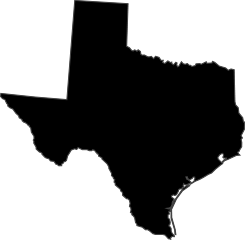
Texas may be known for oil, but it leads the country in wind power. Read more.
The Electric Reliability Council of Texas (ERCOT) maintains the state’s independent power grid and has warned that the recent rapid growth of energy-intensive, large-scale cryptocurrency mining operations in Texas has raised electricity prices and threatens the stability of the grid.
Earthjustice helps local community groups oppose Texas cryptocurrency mining operations, exposing companies that reaped millions in profit from demand-response and other ERCOT programs meant to help consumers, not line the pockets of out-of-state crypto firms. Demand-response programs are designed to stabilize the grid, not subsidize the expansion of energy-intensive industries.
So far, Texas’s response has been to subsidize more methane gas, ignoring that renewables, energy efficiency, and other demand-response programs would be cheaper.
Earthjustice opened our Gulf Regional office in Houston in 2022.
Our clients: Sierra Club, Public Citizen
-

Washington passed legislation requiring utilities to transition to 100% clean energy by 2045 and to ensure that transition is equitable. Our work before the Utility and Transportation Commission has energized both parts of that mandate. Read more.
In 2019, Washington passed legislation requiring utilities to transition to 100% clean energy by 2045 and to ensure that transition is equitable. Earthjustice’s work before the Utility and Transportation Commission (UTC) has energized both parts of that mandate.
First, Earthjustice pushed Puget Sound Energy (PSE), the state’s largest utility, to begin winding down their gas business.
In 2022, PSE submitted plans to the UTC to expand its gas system by adding new customers and growing gas infrastructure. Earthjustice and our clients pushed back, leading to a settlement that effectively ended the expansion of PSE’s gas system and encouraged the utility to transition away from gas. The deal instead set up a new program to electrify 10,000 gas customers through various incentives. The following year, gas use dropped 7% among PSE’s residential customers.
When PSE submitted its clean energy transition plan, Earthjustice intervened again in the UTC, arguing the utility fell short on the equitable transition requirement.
The commission ordered PSE to modify its plan in virtually every way we asked, including:
- Doubling PSE’s community solar target
- Requiring PSE to track and reduce the percent of income customers are paying for energy
- Ensuring that at least 30% of the energy benefits of all of PSE’s distributed clean energy programs flow to “highly-impacted” communities
- Requiring PSE to create a new pilot program to engage directly with communities to develop clean energy plans
This built on energy justice provisions in the 2022 settlement that included programs for energy efficiency and weatherization upgrades for low-income customers.
Want to get involved in Washington? Reach out to Front and Centered. Other clients include: NW Energy Coalition, Sierra Club
Utilities involved: Puget Sound Energy
-

West Virginia is the most coal-dependent state in the country. We’ve represented local groups before the Public Service Commission of West Virginia to defend energy efficiency programs, defeat schemes to prop up coal plants, and foster the continued growth of rooftop solar. Read more & get involved.
With 89% of its electricity generated by aging coal-fired power plants, West Virginia remains the most coal-dependent state in the U.S.
Since 2016, Earthjustice has represented local groups before the Public Service Commission of West Virginia to defend energy efficiency programs, defeat schemes to prop up coal plants, and foster the continued growth of rooftop solar. Despite challenges, we have continued to make progress:
- In 2019 and 2021, we successfully defended and expanded programs that help people make their homes more energy efficient. In early 2024, we secured funding that will enable low-income customers of FirstEnergy to weatherize their homes, and we thwarted FirstEnergy’s attempt to cut funding for its bill assistance program.
- In 2018 and again in 2023, we successfully halted utility efforts to slash net metering, the rate at which people are credited for the excess energy they generate from rooftop solar. To date, customers of FirstEnergy and AEP have installed more than 30 MWs of net-metered generation. The proposed cuts would have significantly hampered the continued growth of solar in West Virginia.
- In 2018, Earthjustice protected utility customers from the bailout of the Pleasants Power Plant, preventing a sweetheart deal that would have saddled utility customers with the plant’s considerable liabilities and costs. We also played a key role in defeating a second bailout attempt in 2023 — one being pushed by the state’s most powerful political leaders.
- In 2024, we secured a settlement that will help curb the uneconomic operation of two coal-fired power plants, Fort Martin and Harrison.
We will push West Virginia utilities to take advantage of federal funds in the Inflation Reduction Act to increase customers’ access to clean energy and effective energy efficiency programs, while continuing to make the case that clean energy is a better option for West Virginians.
Want to get involved in West Virginia? Sign up with West Virginians for Energy Freedom. Other clients include: West Virginia Citizen Action Group, Solar United Neighbors, Energy Efficient West Virginia
Utilities involved: AEP (Appalachian Power Company, Wheeling Power Company), FirstEnergy (Monongahela Power Company, The Potomac Edison Company)
-

In Wisconsin, Earthjustice is advocating for solar energy users, including stopping a proposed expansion of a utility program that discriminated against customers who own their own rooftop solar panels. Read more & get involved.
Earthjustice is working in Wisconsin to reduce the continued use and buildout of fossil fuel energy infrastructure and to promote affordable solar solutions. We have been working to advocate for solar energy users and energy customers before the Public Service Commission of Wisconsin (PSCW) since 2016.
- In 2021, we filed a lawsuit on behalf of the Midwest Renewable Energy Association in Wisconsin Circuit Court to challenge unlawful policies of the PSCW prohibiting customers from banding together and participating in wholesale energy markets through demand response aggregation. In 2024, we won our case on appeal and the ban on aggregated demand response was lifted. Within a week of the decision, companies that aggregate demand response dispatched salespeople to Wisconsin and were registering new demand response resources with the regional transmission organization. Earthjustice is fighting these prohibitions in a number of states so that everyone can benefit from demand response programs.
- In 2022, Earthjustice intervened on behalf of our client Vote Solar and stopped a proposed expansion of a program by the Wisconsin Electric Power Corporation that discriminates against customers who own their own rooftop solar panels. We succeeded in protecting the market for customer-owned solar.
- In 2023, we defeated proposals by both Madison Gas and Electric and Wisconsin Power and Light to eliminate net metering for customers with rooftop solar.
- Earthjustice is now fighting a proposed methane gas plant in Superior, WI.
Earthjustice and our partners continue to fight in Wisconsin to ensure that clean energy is given a fair chance to thrive in the state and that families and businesses are not beholden to electricity produced by dirty power plants for industry profit.
Want to get involved in Wisconsin? Sign up with Renew Wisconsin. Other clients include: Vote Solar, Midwest Renewable Energy Association, Sierra Club, Environmental Law & Policy Center
Utilities involved: WE Energies, Wisconsin Public Service Corporation
-
Much of our nation’s energy policy — including the cost of your electricity bills and where your power comes from — is crafted at the state level by public utility commissions. Earthjustice’s lawyers, in partnership with state and regional partners, are making the case for clean energy in these often overlooked but immensely important regulatory forums. Read more.
States created public utility commissions to oversee utility monopolies because we all need power to live. In many ways, PUCs operate like courts. When a utility wants to increase rates, build a methane gas power plant or pipeline, prop up an aging coal plant, or build new energy infrastructure, the proposal typically comes before the PUC for a hearing.
Utilities too often tend to argue for old, dirty sources of power over renewables. And well-resourced utilities can afford to hire experts to help them navigate the highly technical PUC proceedings, meaning that they have a huge advantage in making their case.
Earthjustice is one of the few organizations with the expertise to rise to the challenge of opposing the utilities. Our attorneys push back on those big-money arguments at PUC hearings, advocating for commissioners to choose clean, energy efficient solutions that yield financial and environmental benefits to everyone.
Getting input from the public is therefore essential to informing commissioners about their constituents’ desire for clean energy. When the public isn't in the room, you can rest assured that profit-driven utilities are in there, making a case for expensive, polluting fossil fuels that their customers would be forced to pay for. Learn more.
|
Understanding Public Utility Commissions
What happens at PUCs, and how it affects you
Utilities submit plans for how to generate power and ask to raise rates.


Earthjustice intervenes on behalf of local clients to speed the transition to cheaper, cleaner energy and a more just power system.


The PUC hears comments from the public, including Earthjustice partners. Then, Earthjustice and other parties submit evidence and cross-examine witnesses in a public legal proceeding.


PUC commissioners vote and issue a decision, approving or denying parts of the utilities’ proposed plans.


By countering utilities at PUCs, Earthjustice and our partners have pushed states across the country to make a faster, more affordable transition to clean energy.
Alison Cagle is a writer at Earthjustice. She tells the stories of the earth: the systems that govern it, the ripple effects of those systems, and the people who are fighting to change them — to protect our planet and all its inhabitants.
Earthjustice’s Clean Energy Program uses the power of the law and the strength of partnership to accelerate the transition to 100% clean energy.